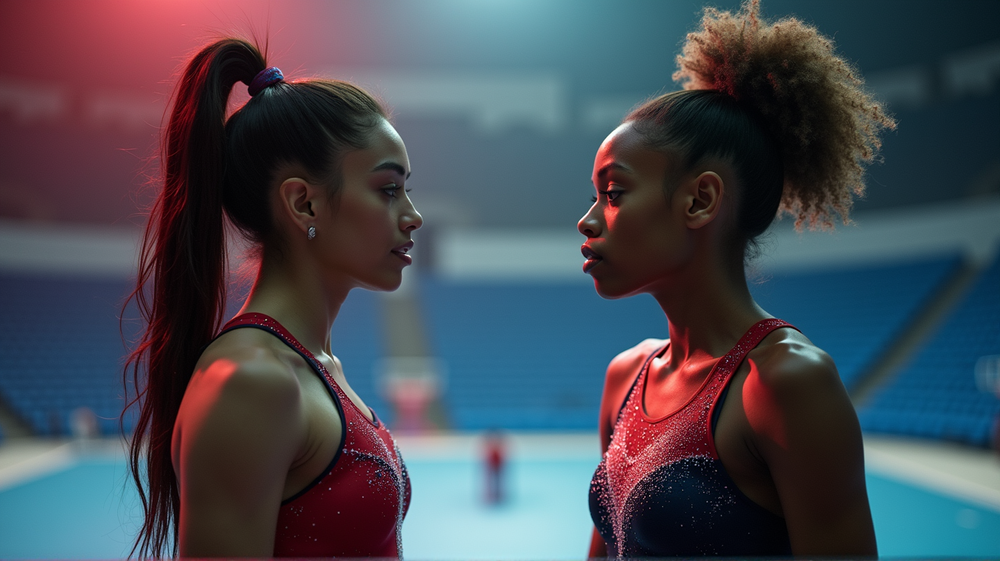Clash of Titans: Riley Gaines and Simone Biles Ignite Social Media Firestorm Over Transgender Athletes
The world of sports and social media witnessed a fiery exchange over the weekend when Olympic legend Simone Biles and former collegiate swimmer Riley Gaines found themselves on opposing sides of a heated debate regarding transgender athletes participating in women’s sports. This social media whirlwind drew attention for its emotional intensity and the critical issues at hand. According to Washington Examiner, the exchange began when Gaines criticized Minnesota’s Champlin Park High School softball team’s star player, whom she claimed was a boy identifying as a girl.
Simone Biles Steps into the Fray
Biles, a household name with a storied career as the most decorated gymnast in U.S. history, took to social media to denounce Gaines’s comments. With pointed criticism, she accused Gaines of being a “sore loser” and urged the former swimmer to focus on inclusivity. Biles proposed the creation of a unique category for transgender athletes, aiming for a balance that safeguards competition while promoting diversity.
A Battle of Accusations
The exchange grew more intense as Biles labeled Gaines “sick” for her ongoing campaign against transgender athletes, leading to a charged back-and-forth. Gaines responded by bringing up a past social media post from Biles in 2017, where the gymnast acknowledged the biological advantages males could hold over females in sports. This juxtaposition highlighted what Gaines portrayed as Biles’s hypocrisy, sparking further debate.
The Reverberating Impact
As the conversation unfolded, it caught the attention of sports enthusiasts and advocates alike. Many applauded Biles’s stance on inclusivity, while others supported Gaines’s call for preserving the integrity of women’s sports. This polarizing discussion showcased the complexity of addressing transgender participation in athletics, leaving the public deeply divided yet engaged.
Conclusions and Reflections
Simone Biles’s ultimate silence in response to Gaines’s rebuttals reveals the depth of emotion and thought provoked by such a nuanced topic. It is a reminder of the ongoing conversation surrounding inclusivity, equity, and the definitions that shape competitive sports.
The dialogue between Gaines and Biles serves as a microcosm of the larger societal debate, reflecting the challenges and potential solutions that lie ahead. As social media continues to amplify voices and viewpoints, these discussions will remain pivotal in shaping the future of athletics and inclusivity policies in sports arenas worldwide.




